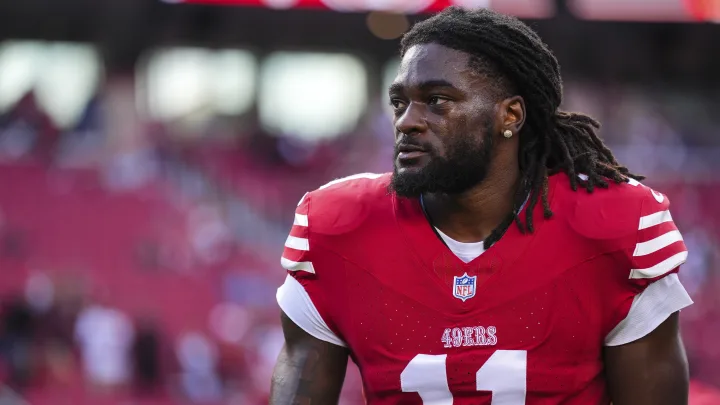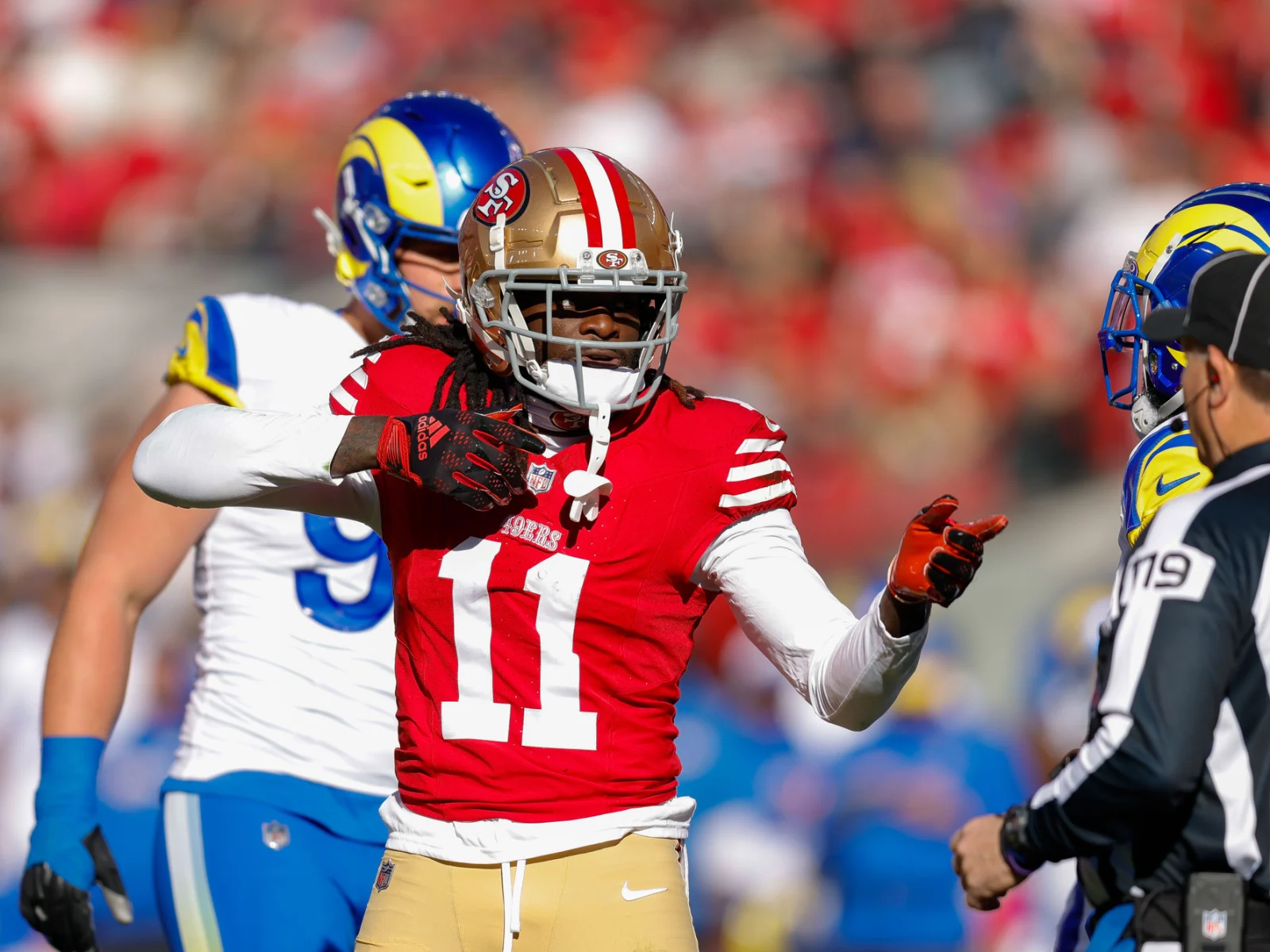
San Francisco 49ers wide receiver Brandon Aiyuk was recently stopped by police under highly questionable circumstances when an officer suspected his brand-new Jeep Grand Cherokee Trackhawk to be stolen. This troubling encounter sheds light on racial profiling and unjust treatment of athletes and individuals of color.
Aiyuk shared his experience on social media, describing the bizarre moment when he was pulled over just after purchasing the vehicle. “Brand new Trackhawk, bro. I got the Trackhawk at 53 miles and got pulled over at 55 miles. I can’t make this up,” Aiyuk said, recounting the stop. The fact that he had only driven a mere two miles in the vehicle before being stopped raised immediate questions about the legitimacy of the officer’s actions.
According to Aiyuk, the officer’s explanation for the stop was rooted in an assumption that the vehicle might have been stolen. Despite the fact that the car was registered in Aiyuk’s name, the officer pushed back and claimed that the type of vehicle itself warranted suspicion. “You see how that looks on our end? You’re rolling around in brand-new Dodges, which are commonly stolen,” the officer reportedly said.
Aiyuk, understandably frustrated, argued that his vehicle was not stolen and questioned the rationale behind being stopped in the first place. He emphasized that there was no reason for the police to stop him, as the car wasn’t listed as stolen in the system. However, the officer’s response suggested that the mere appearance of the vehicle—a high-end, luxury SUV—was enough to trigger suspicion.
This incident underscores a larger problem of racial profiling, particularly within the context of high-profile athletes who are often subjected to discriminatory treatment due to their appearance or the vehicles they drive. High-performance cars like the Jeep Grand Cherokee Trackhawk are frequently targeted by law enforcement due to their association with luxury, but in this case, it was an assumption that led to a tense encounter.
Aiyuk’s story adds to the ongoing conversation surrounding racial bias in policing and the ways in which certain individuals, especially Black men, are disproportionately subjected to scrutiny. As a public figure, Aiyuk’s experience highlights a broader societal issue, forcing the public to reflect on how such encounters can escalate based on unfounded assumptions.
While Aiyuk eventually left the encounter without incident, the emotional toll and humiliation of such a stop are hard to overlook. It serves as a reminder of the need for continued discussions about racial bias in law enforcement and the importance of holding officers accountable for unjustified actions.
In the end, Aiyuk’s experience wasn’t just about a car being stopped—it was about the systemic issues that people of color continue to face in everyday situations.

Leave a Reply